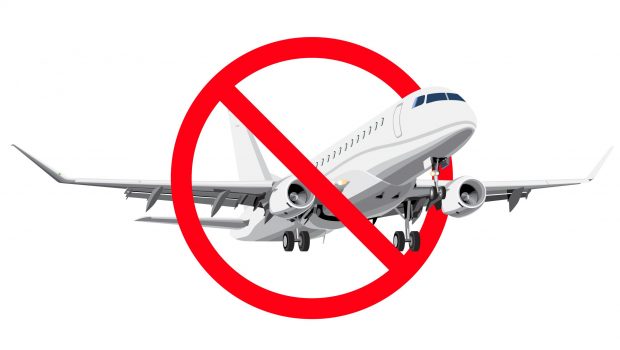U.S. Embassy Failures, COVID-19 Travel Restrictions, Keep Attorney Working on COVID-19 Technology Out of United States
“While COVID-19 constraints on U.S. Embassy resources pose one issue, another problem for Karavida has been a series of Presidential executive orders stemming back to the Trump Administration that effectively ban foreign professionals from returning home to the United States and continuing their work here.”
Surely there can be no greater national interest to the United States than to allow each and every single person working to solve the COVID-19 pandemic to cross our border without issue, especially those who have already earned visas to work in the United States. However, a series of unfortunate events and policies has resulted in an ironic situation in which, in one example, an attorney from Sweden, who has spent significant periods of time within the United States since 2006, cannot return to the states to sit for the patent bar; aid members and clients of her law firm who are needful of her unique skills, including one colleague who is undergoing medical treatment for a serious health condition; or prosecute several patent applications representing some vital advancements in the fight against COVID-19. U.S. Embassy inaction, which is blocking her ability to take the U.S. patent bar, join her colleagues in the U.S. who have mentored her in this field for a year-and-a-half, and work on these COVID-19 patent solutions, arguably threatens the very chance of those inventions and technologies being properly commercialized to benefit everyone in the United States and beyond.
Stuck in Sweden
On August 31, U.S.-licensed attorney Nafsika Karavida, an Associate with Reavis Page Jump LLP, and already a member of the New York and Connecticut state bars, along with the Swedish national bar, was notified by the U.S. Embassy in Sweden for the second time in the last six months that the Embassy is unable to resume “routine” visa operations. The U.S. Embassy cited constraints posed by the COVID-19 pandemic as the reason the Embassy was only offering non-routine visa appointments for “individuals with urgent humanitarian travel needs, such as life or death emergencies, and for emergency medical treatment.”
Karavida (who has previously written for IPWatchdog) has worked to complete an array of coursework in chemistry and other sciences, studying remotely at the University of Connecticut, which are prerequisites to sitting for the U.S. patent bar. However, Karavida must be physically present within the United States to actually sit for the patent bar, or take it at a Prometrics testing center, and she has been unable to do so.
While COVID-19 constraints on U.S. Embassy resources pose one issue, another problem for Karavida has been a series of Presidential executive orders stemming back to the Trump Administration that effectively ban foreign professionals from returning home to the United States and continuing their work here. In the case of Karavida, her H-1B work petition was approved in September 2020, yet her visa appointment to obtain the required H-1B visa page at the U.S. Embassy was scheduled for more than a year later – October 2021 – an appointment that was canceled again by the U.S. Embassy just a few days ago. A new appointment was assigned for February 10, 2022, a full year-and-a-half after Karavida’s work petition was first approved – with no promise it won’t be canceled for the third time.
Work on COVID-19 Technologies Should Qualify for National Interest Exception
Executive Order 10143, issued this past January by the Biden Administration, continues to restrict travel into the United States by those situated in many regions throughout Europe, including the Schengen Area, which includes Sweden as a member country. Although no specific strain of the SARS-CoV-2 coronavirus in Schengen was identified by EO 10143, the travel restrictions were established in order to reduce transmission of the coronavirus from individuals in that open border area comprising a total of 26 European countries.
The purported reason for the travel ban is to stop the spread of COVID-19. This clearly has not worked, however, and thus its use has been outlived and it is now causing catastrophic financial turmoil to multiple industries, in addition to keeping families and colleagues separated without reason.
The countries on the list below all have current travel restrictions on entering the United States. If a country is NOT on the list, then it means there is no current travel restriction in place. The Biden Administration seemingly did not review this list when taking office, other than to add South Africa to it, and the list has not been otherwise updated or amended after being put into place by President Trump in March 2020:
Austria, Belgium, Brazil, China, Czech Republic, Denmark, Estonia, Finland, France, Germany, Greece, Hungary, Iceland, India, Iran, Ireland, Italy, Latvia, Liechtenstein, Lithuania, Luxembourg, Malta, Netherlands, Norway, Poland, Portugal, Slovakia, Slovenia, South Africa, Spain, Sweden, Switzerland, United Kingdom.
According to statistics as of September 10, 2021, Argentina has 19,074 new COVID-19 cases confirmed in the last seven days, Mexico has 74,705, and Sweden has 6,010. Why, then, is Sweden on the list of banned countries, and not countries like Argentina or Mexico, with more than ten times the cases?
The same applies for vaccination rates. The United Kingdom now has an approximately 70% vaccinated population, versus other countries whose populations are hardly vaccinated at all.
While the patents could of course be prosecuted elsewhere or by another attorney, these policies seem outdated and unnecessarily burdensome, and could result in delays to commercialization of some crucial technologies.
Image Source: Deposit Photos
Vector ID:355846998
Copyright:s.belinska

Steve Brachmann
is a freelance journalist located in Buffalo, New York. He has worked professionally as a freelancer for more than a decade. He writes about technology and innovation. His work has been published by The Buffalo News, The Hamburg Sun, USAToday.com, Chron.com, Motley Fool and OpenLettersMonthly.com. Steve also provides website copy and documents for various business clients and is available for research projects and freelance work.








Gloss